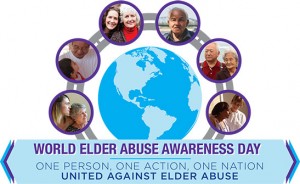Your loved one has always managed the maintenance and upkeep of their home but lately you’ve noticed that there are several areas that need attention. Becoming a caregiver may seem overwhelming for just one person to tackle. Asking for help from family members and others may be challenging but will often prove successful.

Here are a few suggestions to promote communication and alleviate burn-out of a caregiver by creating a greater sharing of responsibilities:
1. Make a list of what you are currently doing.
2. Identify things your siblings, family members or others can do to help. You never know, they may be feeling left out and wish to contribute.
3. Out of town family members could become responsible for online banking, income tax preparation, phone calls to professionals, etc.
4. Set up a meeting with your support group. Give others a sense of working together rather than telling them what to do. If possible, include your loved one in the meeting.
5. If you sense a conflict within your support group, don’t jump to conclusions and pre-judge that person. Siblings may harbour feelings from the past. Suggest everyone put aside differences and work together.
6. Adopt a common communication mechanism for sharing information (ie email, text, phone etc).
7. Set up a a shared calendar and ask volunteers to do certain tasks.
8. Have a communication book in your loved ones home for all to note observations, suggestions, messages, appointments, etc.
BOTTOM LINE: Be good to yourself. Stay strong and healthy.
The 3 R’s of Caregiving are:
1. RESPECT: By respecting yourself, you ensure that your mind, body and spirit remain whole so that you can carry on the tasks of being an effective caregiver.
2. REALISTIC expectations: Do not lose perspective on the situation and undertake more than you are able to or should. Delegate, prioritize and accept offers of help.
3. RESPITE: Take a break or find a breathing space in your day. Be good to yourself as you care for your loved one.







